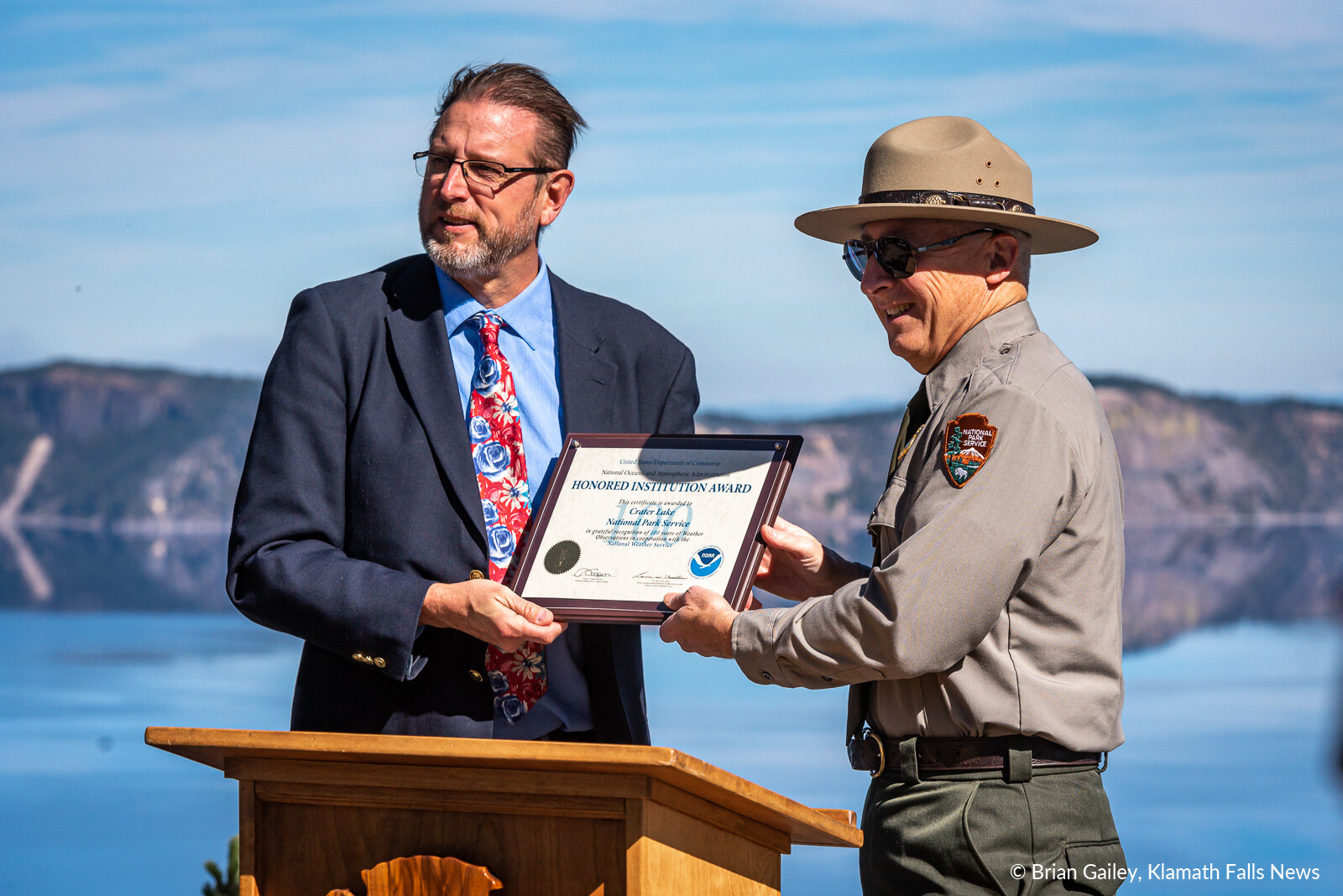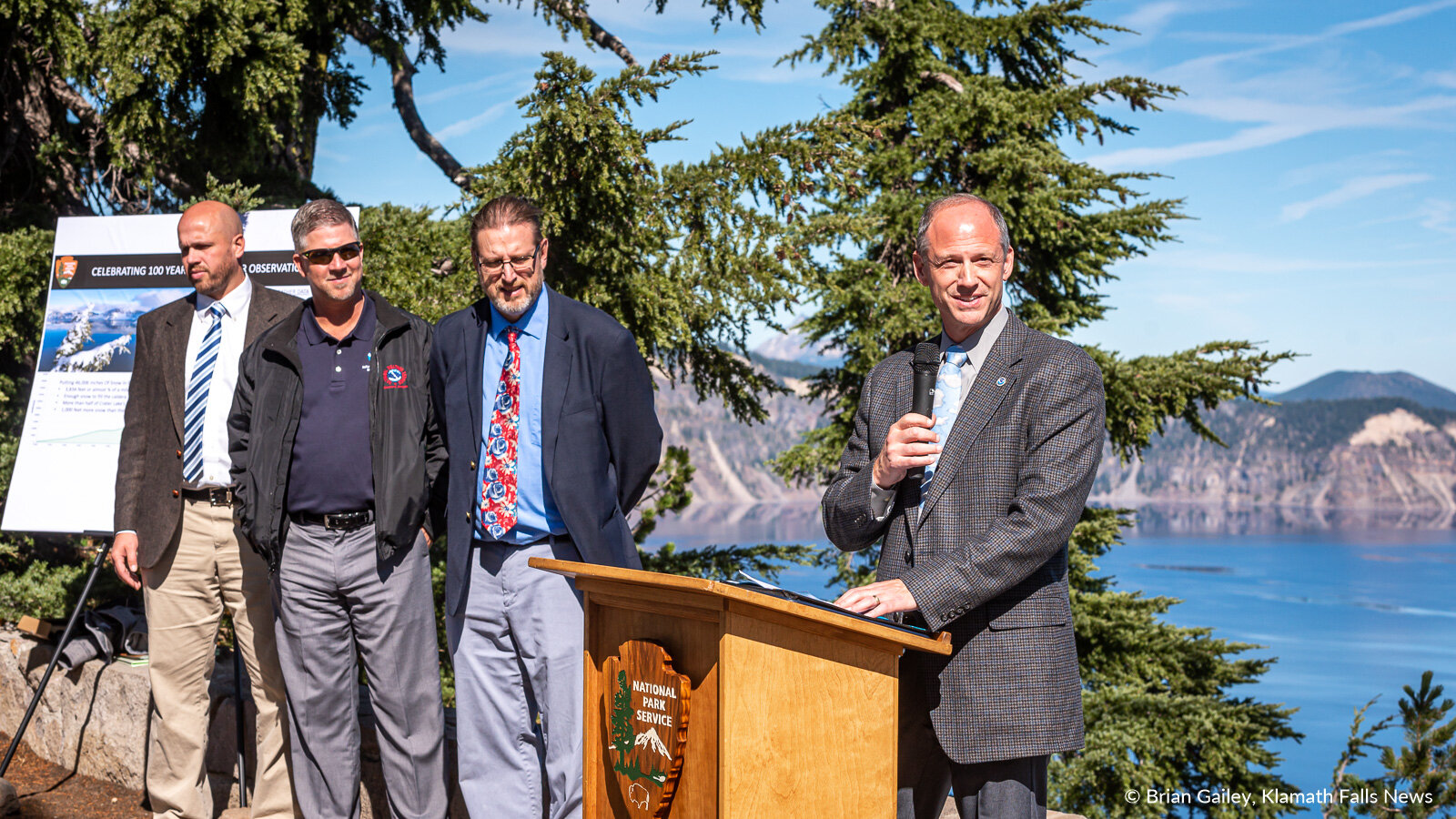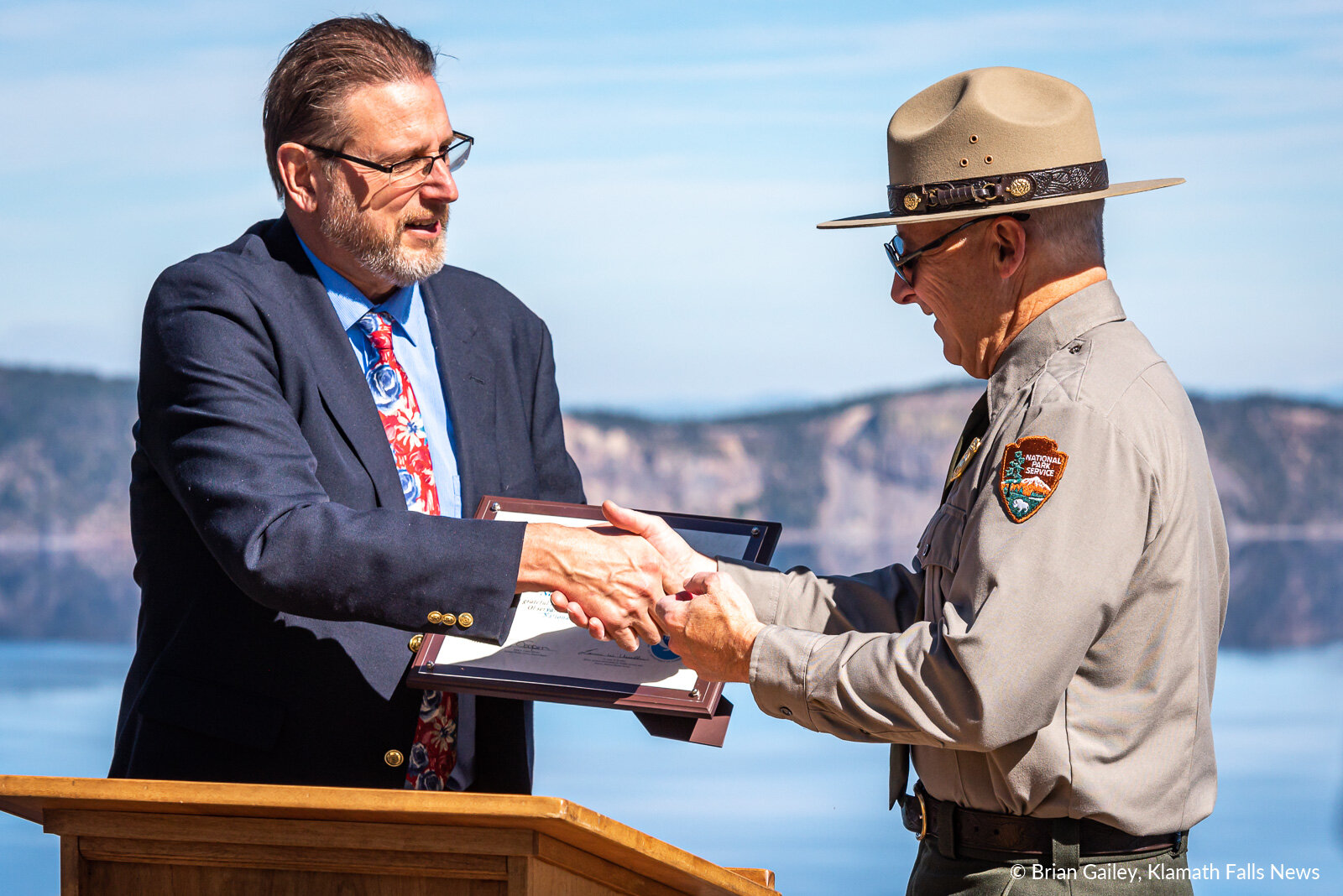‘Persistence yields results’
/National Weather Service to Recognize Crater Lake National Park for 100 Years of Weather Observation
Crater Lake National Park Superintendent Craig Ackerman receives an Honored Institution Award from the National Weather Service on behalf of Crater Lake NP for 100-years of weather observations within the park. October 7, 2019 (Image: Brian Gailey / Klamath Falls News)
CRATER LAKE, Ore. – On Monday, October 7, 2019, representatives from the National Weather Service visited Crater Lake National Park to celebrate 100 years of weather observation with a brief ceremony held near the historic Crater Lake Lodge.
Long-term weather observations are extremely important to monitor climate trends and predict weather conditions. Meteorologists use weather data collected by the park to study snowfall amounts and track changes in weather patterns. Crater Lake National Park is the only long-term high elevation snow data collection site in southern Oregon.
“Persistence yields results,” said Craig Ackerman, Superintendent of Crater Lake National Park. “Being consistent and persistent we have seen we now have a wonderful database of knowledge that we can draw from to make decisions that effect not only the park but all the people who rely on it.”
Weather plays a significant role in the resources and management of the park.
Crater Lake is filled entirely by rainfall and snowmelt, resulting in some of the purest, clearest water on the planet. With an annual snowfall of 512 inches, Crater Lake National Park is one of the snowiest inhabited places in the country. The park’s snowplow operators work hard to clear snow from roads so that visitors can safely experience the incredible winter vistas and recreational opportunities the park has to offer.
The park works closely with the National Weather Service (NWS) not only during the winter, but during summer storms as well. The partnership with the NWS is a critical component of safe boat tour operations on the lake. The NWS alerts the park if thunderstorms are moving towards the lake and provides valuable information to park and concession staff to help determine if tours need to be postponed or cancelled to avoid hazardous lightning.






